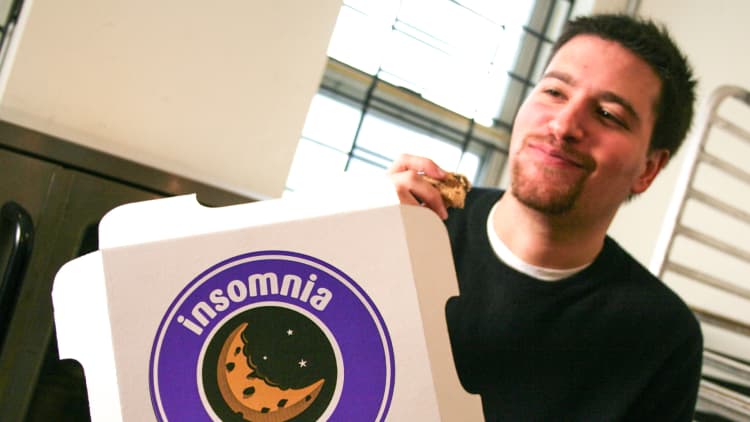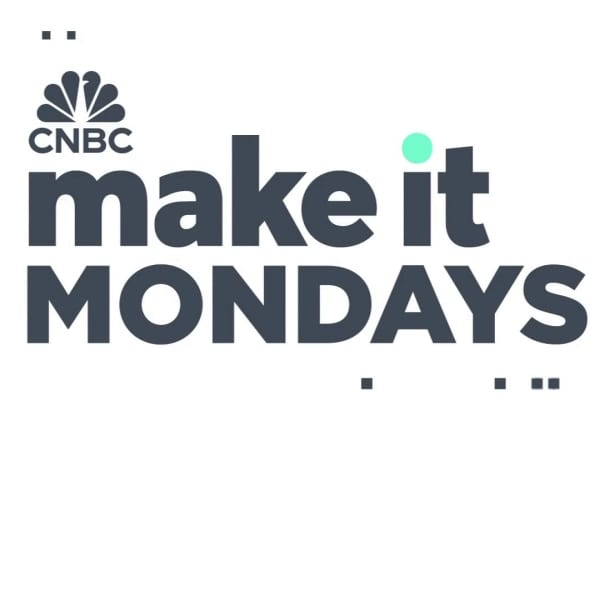Just after a magnitude 4.8 earthquake rattled the northeastern United States on Friday, Kerry Colley glanced at his on-staff graphic designer and said, "Think we can make a T-shirt out of this?"
It took 15 minutes for Colley and his team to make the shirt and hang it outside his customizable apparel shop, in New York's Upper West Side neighborhood. Colley didn't advertise it on social media, and priced the shirt at $10, not expecting to turn a large profit, he says.
Soon, his shop — a franchised location of Big Frog Custom T-Shirts and More — had 70 customers waiting in a two-hour line, trying to get their hands on a grey, red and blue "I Survived The NYC Earthquake" cotton shirt that afternoon, says Colley. A customer told him that the shirt had been viewed almost 2 million times on social media platform X, he adds.
The result: his highest-earning retail weekend ever, he says. The shop sold roughly 1,000 earthquake shirts over 21 hours on Friday and Saturday, resulting in more than $9,800 in revenue, according to documents reviewed by CNBC Make It. Colley estimates 20% of those in-store sales are profit.
Colley — who opened the shop in 2019 after leaving his job as an executive director at JPMorgan Chase, according to his LinkedIn profile — says he's never experienced a weekend like this. The store has been so busy that its staffers haven't had time to come up with a follow-up design, or one for Monday's solar eclipse.
Tourists stopped by because their friends had seen videos of his shop on local news channels in Italy, says Colley.
A 'semi-retirement' gig that became a full-time job
Before Colley opened his T-shirt store's doors, he spent two and a half decades working in banking. After roughly 12 years at JPMorgan Chase, he felt burned out, and a business coach advised him to get into entrepreneurship, he says.
He then met with a franchise specialist, who introduced him to a couple of ideas. Colley landed on Big Frog, which has more than 75 locations across the U.S., partially because the company's owners told him they weren't sure how to market a store in New York — meaning he had some latitude to run it his own way, he says.
The shop is run by Colley and his husband Joshua Drumm, who helps out on the side. Colley steers the ship, with three full-time and three part-time employees. He works 60 hours per week, and most of the shop's typical revenue comes from business-to-business or local events, he says.
It was supposed to be a "semi-retirement" job, but now, he works more hours and earns less income — all worth it, says Colley.
"I've learned more in the last five years than I could ever imagine. I'd never go back," he says. "There's pure joy in the experience of it. That's why I liked this franchise ... You're being creative, you're working with all kinds of different people."
His store started selling its earthquake T-shirt online on Sunday, after seeing copycats advertising near-identical versions. Hype is waning, but the shop still brought in approximately $1,600 in online sales by Monday evening, he says.
The shirts still cost $10 each, less than the standard $30 Big Frog shirt. Colley says he doesn't plan to raise the price.
"We weren't looking to make a million dollars," he says. "We weren't looking to make anything at all. It's just fun."
Want to make extra money outside of your day job? Sign up for CNBC's new online course How to Earn Passive Income Online to learn about common passive income streams, tips to get started and real-life success stories. Register today and save 50% with discount code EARLYBIRD.
Plus, sign up for CNBC Make It's newsletter to get tips and tricks for success at work, with money and in life.






